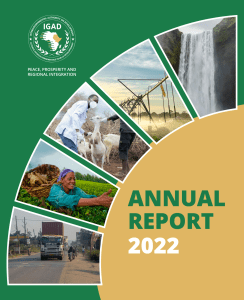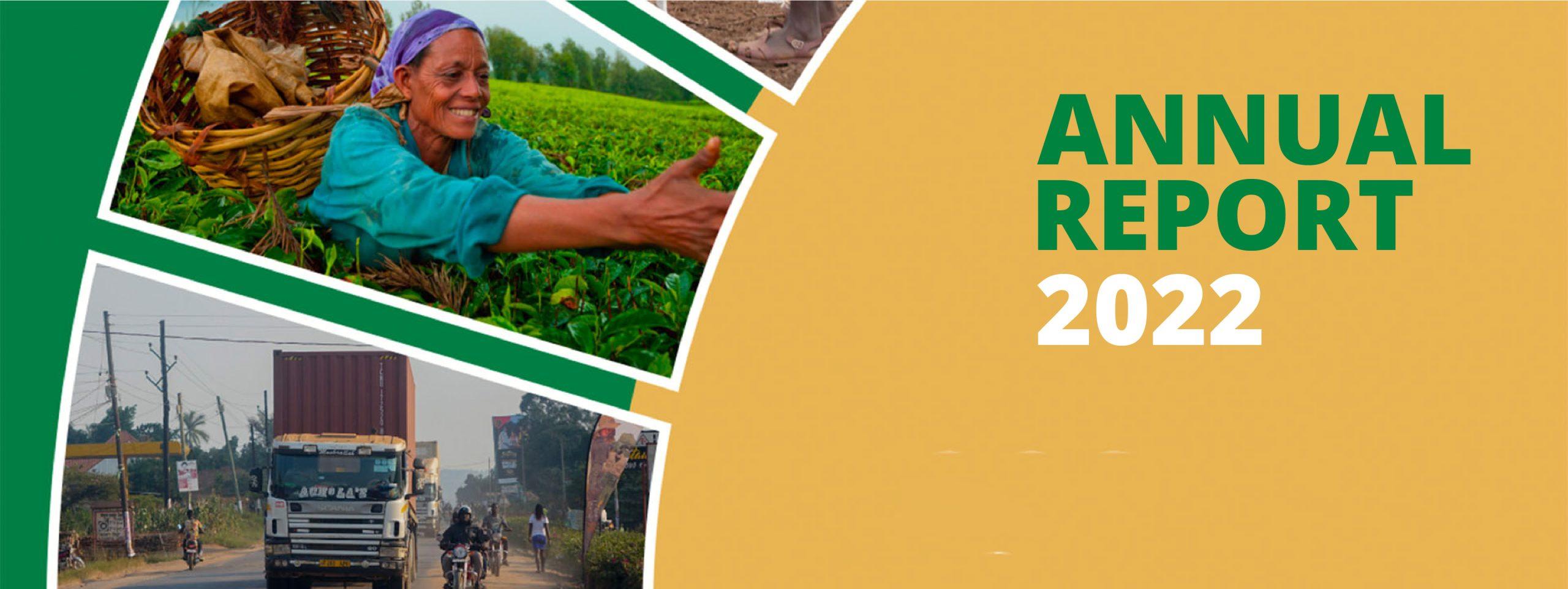 About the Report (Executive Summary)
About the Report (Executive Summary)
This Annual Report presents the highlights of IGAD’s programmatic and financial performance and results for 2022.
In line with its strategic priorities and collaboration with its Member States and development partners, IGAD continued to deliver transformative programmes, projects and interventions in the areas of: agriculture, livestock and blue economy (BE); regional integration; health and social development and; peace and security.
During the reporting period, IGAD significantly directed its investments towards achieving food and nutrition security in the region through four results areas, namely: increasing production and productivity of agriculture and livestock; increasing productivity of fisheries, aquaculture and other blue economy sectors; promoting and facilitating trade in agricultural, livestock and fisheries products; strengthening sanitary and phytosanitary systems in the region and; post-harvest loss management.
In order to enhance the sustainable management of natural resources and the environment, IGAD’s interventions focused on strengthening land governance systems and improving management and use of transboundary water resources in the region; and improving land governance for sustainable development.
Regarding strengthening resilience to climate change impacts, IGAD, through its Climate Prediction and Applications Centre (ICPAC), implemented several interventions, including the production of climate products to increase availability, access and use of climate services and to guide disaster risk management action in Member States. As a way to build the resilience of Member States, IGAD, through its Drought Disaster Resilience and Sustainability Initiative (IDDRSI), capacitated IDDRSI National Expert Panels (NEP) from Djibouti, Ethiopia, Kenya, Sudan, South Sudan, Somalia, and Uganda.
In pursuit of its regional integration priorities, IGAD continued to deliver strategic interventions to support Member States in: trade policy harmonisation, support to African Continental Free Trade Area (AfCFTA) domestication and capacity building in trade facilitation. These interventions were all aimed at significantly contributing to boosting intra-regional trade.
In order to address the health and social development challenges in the region, IGAD implemented several interventions aimed at enhancing social inclusion and empowering vulnerable populations, which focused on scaling up health systems to improve access to equitable health services, strengthening governance systems and architecture for migration and displacement, strengthening Member States’ capacities in migration data systems, harmonisation of remittance policies and frameworks, prevention of climate-induced disaster displacement, enhancing evidence-based decision-making on migration and displacement, enhancing education access and operationalisation of the regional migration fund.
During the review period, IGAD implemented several programmes and activities in the area of Peace and Security (P&S) focused on promoting peace, security and stability and, eliminating sources of conflict and preventing and resolving conflict in the region. The interventions included: early warning and early response interventions, peace building and mediation, strengthening mechanisms to address transnational security threats, preventing and countering violent extremism, supporting the Red Sea and Gulf of Aden efforts, and enhancing good governance and democratisation.
In line with its resolve to strengthen the institutional capacity to effectively deliver its mandate, IGAD continued to execute several reforms, including the deployment of a new Planning, Budgeting and Monitoring System (PBMS), deepening international cooperation and strategic partnerships, boosting evidence-based decision-making, and through other special initiatives on taking IGAD to the people and increasing traction towards gender equality and women’s empowerment.
Download IGAD Annual Report 2022 Here
